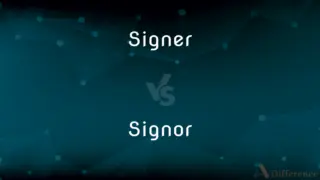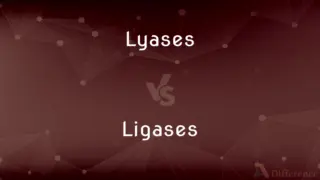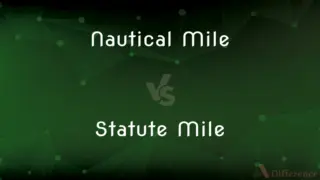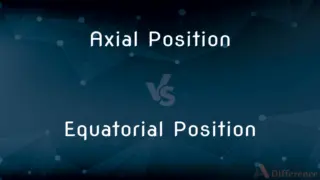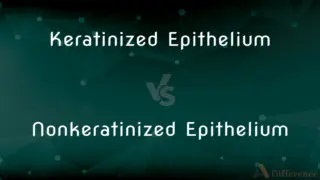Colonizer vs. Settler — What's the Difference?
Edited by Tayyaba Rehman — By Fiza Rafique — Updated on May 6, 2024
Colonizers impose control over territories and populations, often exploiting resources, while settlers move to inhabit new areas, sometimes independently of imperial motives.

Difference Between Colonizer and Settler
Table of Contents
ADVERTISEMENT
Key Differences
Colonizers often originate from a foreign power seeking to exert control over a new territory for economic or strategic gains. Settlers, on the other hand, are individuals or groups who relocate to live in a new place, not necessarily with the intent to dominate.
The role of colonizers is typically associated with imperialism and the establishment of colonies that subjugate and govern local populations. Whereas settlers might be part of colonial projects, they can also migrate independently for reasons like farming, escaping persecution, or seeking new opportunities.
Colonizers usually maintain strong ties with their country of origin, implementing their native government, culture, and economic systems in the colonized area. Settlers, meanwhile, might gradually integrate or assimilate into existing cultures or create new, mixed communities.
The impact of colonization is often marked by significant disruption of the existing social and economic structures of the colonized area. In contrast, the settlement can lead to the gradual development of a region through agriculture, trade, and community building.
Colonizers are frequently driven by the agendas of their home governments, involving military conquests and strategic occupations. Settlers might be driven more by personal or communal motivations, which can include religious freedom or economic hardship in their original homes.
ADVERTISEMENT
Comparison Chart
Motivation
Exploitation, control, and extension of home country
Relocation for personal, economic, or safety reasons
Relationship with Home
Maintain strong ties and allegiance
May sever ties or maintain loose connections
Impact on Local Area
Often disruptive and controlling
Can be integrative or isolated
Governance
Imposes external governance structures
May develop local governance or self-rule
Cultural Influence
Imposes own culture, often disregarding local norms
May adapt to or mix with local cultures
Compare with Definitions
Colonizer
Representatives of colonial rule managing colonies.
Colonizers in America established new towns and roads to enhance control.
Settler
Participants in a settlement not primarily focused on domination.
Many settlers sought religious freedom rather than territorial conquest.
Colonizer
Agents of a colonizing state who enforce new laws and systems.
The British colonizers introduced their own educational system in India.
Settler
A person who moves to a new area to establish a home.
Settlers moved westward across North America during the 19th century.
Colonizer
An individual participating in a systematic conquest and exploitation.
Colonizers often imposed their languages and religions on indigenous populations.
Settler
Pioneers in a previously uninhabited or sparsely populated area.
Settlers often faced harsh conditions with little support.
Colonizer
Members of a group that takes resources from colonized areas.
Colonizers exported precious metals and spices back to Europe.
Settler
Immigrants founding new communities.
Early settlers in New Zealand were primarily from Britain and Ireland.
Colonizer
A person or group from a powerful country establishing control over a less powerful region.
European powers acted as colonizers in Africa during the 19th century.
Settler
Builders of new societal norms and structures in a new land.
Settlers developed unique cultural blends with native populations.
Colonizer
To form or establish a colony or colonies in.
Settler
A settler is a person who has migrated to an area and established a permanent residence there, often to colonize the area. A settler who migrates to an area previously uninhabited or sparsely inhabited may be described as a pioneer.
Colonizer
To migrate to and settle in; occupy as a colony.
Settler
One who settles in a new region, especially a region that has few occupants or that is occupied by people of a different ethnic or religious group.
Colonizer
To resettle or confine (persons) in or as if in a colony.
Settler
One who settles or decides something.
Colonizer
To subjugate (a population) to or as if to a colonial government.
Settler
(Law) Variant of settlor.
Colonizer
To form or establish a colony.
Settler
Someone who settles in a new location, especially one who takes up residence in a previously uninhabited place; a colonist.
The first settlers of New England
Colonizer
To settle in a colony or colonies.
Settler
Someone who decides or settles something, such as a dispute.
Colonizer
One who colonizes:
Settler
(colloquial) That which settles or finishes, such as a blow that decides a contest.
Colonizer
One who makes a group or place into a colony; one who establishes a colonial relationship.
Settler
(British) The person in a betting shop who calculates the winnings.
Colonizer
One who establishes or joins a colony; a colonist.
Settler
A drink which settles the stomach, especially a bitter drink, often a nightcap.
Colonizer
One who intrudes and takes over.
Settler
A vessel, such as a tub, in which something, such as pulverized ore suspended in a liquid, is allowed to settle.
Colonizer
(ecology) A species that establishes itself in a new area.
Settler
One who settles, becomes fixed, established, etc.
Colonizer
A white person.
Settler
Especially, one who establishes himself in a new region or a colony; a colonist; a planter; as, the first settlers of New England.
Colonizer
One who promotes or establishes a colony; a colonist.
Settler
That which settles or finishes; hence, a blow, etc., which settles or decides a contest.
Colonizer
Someone who helps to found a colony
Settler
A vessel, as a tub, in which something, as pulverized ore suspended in a liquid, is allowed to settle.
Settler
A person who settles in a new colony or moves into new country
Settler
A negotiator who settles disputes
Settler
A clerk in a betting shop who calculates the winnings
Common Curiosities
What are some common reasons for colonization?
Reasons for colonization can include economic gain, strategic expansion, religious propagation, or national glory.
Do colonizers and settlers have different relationships with their native countries?
Yes, colonizers often act as extensions of their native governments, whereas settlers may seek independence or have a more nuanced relationship.
Do settlers always integrate into local cultures?
While some settlers integrate, others may remain isolated, forming distinct communities with minimal interaction with indigenous populations.
What kind of support do colonizers receive from their home countries?
Colonizers typically receive military, financial, and administrative support to establish and maintain colonies.
How do settlers typically fund their relocation and settlement?
Settlers often fund their relocation through personal savings, loans, or grants from governments encouraging settlement.
Can the role of a settler evolve into that of a colonizer over time?
Yes, settlers can evolve into colonizers, especially if they begin to subjugate local populations or exploit resources under official or unofficial auspices.
How do educational systems differ under colonizers vs. settlers?
Colonizers often establish educational systems to propagate their own cultural values, whereas settlers might create schools that blend their traditions with local ones or focus on community needs.
What legal systems do colonizers typically impose?
Colonizers often impose their home country’s legal systems, which can be fundamentally different from indigenous practices.
Are there historical examples where settlers resisted becoming colonizers?
Yes, in some cases, settlers have resisted imperial policies and sided with indigenous populations against colonizing forces.
How do settlers impact the economy of a new area?
Settlers can diversify the economy through agriculture, trade, and other industries, sometimes positively, sometimes disruptively.
What happens to indigenous cultures under colonizer rule?
Indigenous cultures are often marginalized, suppressed, or altered due to forced assimilation policies and cultural domination.
How do settlers handle conflicts with indigenous populations?
Settlers may engage in negotiations, conflicts, or alliances, depending on their intentions and the context of their settlement.
How does the international community view colonization vs. settlement in modern times?
Modern international norms typically condemn colonization due to its exploitative nature, while settlement is often viewed within the context of migration and human rights.
What role do religious beliefs play in colonization and settlement?
Religion can be a major motivator for both; colonizers may seek to convert indigenous populations, while settlers often seek religious freedom or aim to spread their faith through community-building.
What environmental impacts do colonizers and settlers have?
Both can significantly impact environments; colonizers often exploit natural resources extensively, while settlers may alter landscapes through agriculture and urbanization.
Share Your Discovery

Previous Comparison
Important vs. Urgent
Next Comparison
Grantor vs. TrusteeAuthor Spotlight
Written by
Fiza RafiqueFiza Rafique is a skilled content writer at AskDifference.com, where she meticulously refines and enhances written pieces. Drawing from her vast editorial expertise, Fiza ensures clarity, accuracy, and precision in every article. Passionate about language, she continually seeks to elevate the quality of content for readers worldwide.
Edited by
Tayyaba RehmanTayyaba Rehman is a distinguished writer, currently serving as a primary contributor to askdifference.com. As a researcher in semantics and etymology, Tayyaba's passion for the complexity of languages and their distinctions has found a perfect home on the platform. Tayyaba delves into the intricacies of language, distinguishing between commonly confused words and phrases, thereby providing clarity for readers worldwide.






